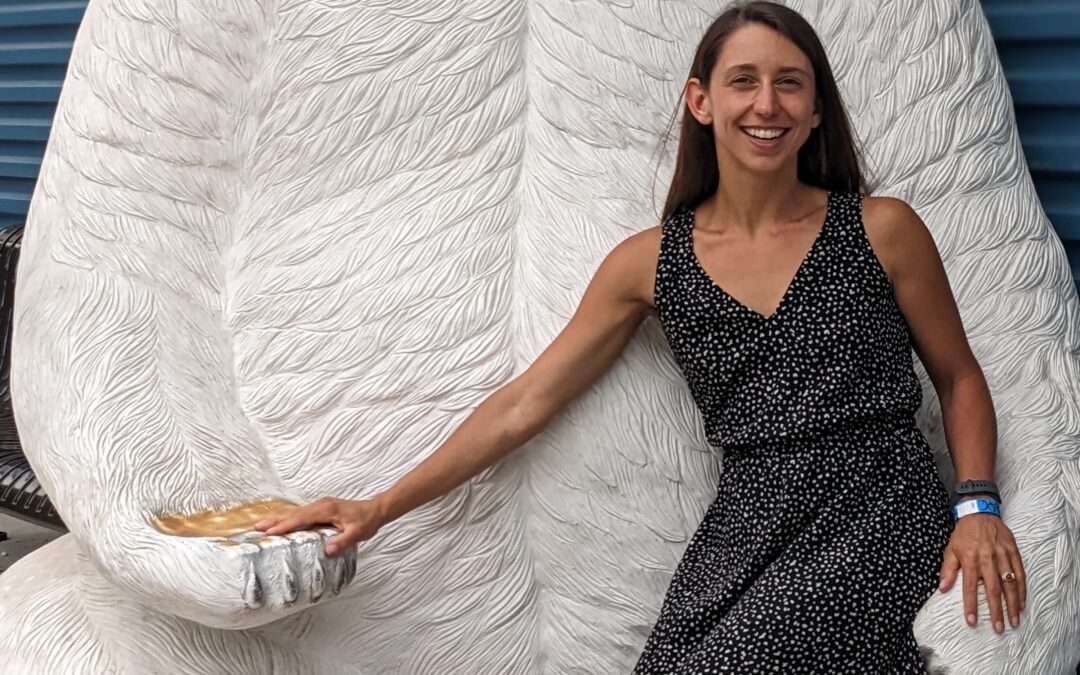Jacqueline “Jacquie” Kociubuk recently joined the Madison Public Library Foundation office through the 2024–25 Mellon Public Humanities Fellowship program.
Over the next nine months, Kociubuk will be researching the history of Madison Public Library as it prepares to mark 150 years in 2025. She is a PhD candidate at the University of Wisconsin–Madison’s iSchool (Information School).
Before arriving at UW, Kociubuk earned her B.S. in biology and chemistry from Evergreen State College and a dual master’s degree in library science and education from Kent State University. Fun fact: Evergreen State College didn’t give out letter grades!
Kociubuk’s research focuses on the role of a public library to children and families for community and learning. She used to work as a librarian, which helped inspire her research.
“Working as a librarian opened my eyes to problems and issues that I don’t think I would have known about, had I just gone straight into researching the libraries,” she said. “It determined what I wanted to do for my dissertation research, and I find it helpful to have more of an insider’s understanding of what goes on in libraries.”
Kociubuk will tap the library’s collection of local public library history and Wisconsin Historical Society resources for her research, which will inform the library and foundation’s efforts to celebrate 150 years of Madison Public Library. After completing her PhD, Kociubuk hopes to work in a position where she is able to continue researching.
Originally from Ellensburg, Wash., Kociubuk has two cats and 12 chickens. She enjoys roller skating, running, and biking — so much that she spent the last year training for the Ironman Wisconsin race and completed it on September 8! She was inspired by her husband, who ran an Ironman race two years ago. She most recently read Choosing to Run by Des Linden.
The Public Humanities Fellowships program is offered through the UW–Madison Center for the Humanities and is made possible with the essential financial support of the Graduate School of the University of Wisconsin–Madison and the Andrew W. Mellon Foundation.

